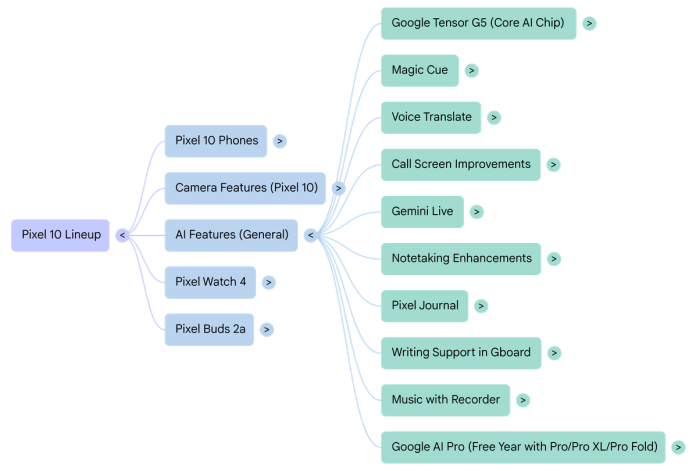In an age where technology evolves at lightning speed, many small business owners are constantly searching for tools to enhance productivity, streamline operations, and elevate customer experiences. Google has just unveiled a suite of updates and new features for its Pixel products at the "Made by Google 2025" event, and the implications for small businesses are substantial.
With the introduction of the Pixel 10 series, business owners are presented with a powerful toolkit right in their pockets. Enhancements to the Pixel Camera capabilities will allow for higher-quality photography—a crucial feature for businesses relying on social media marketing, product listings, and promotional materials. As images remain a primary driver in capturing consumer attention, these camera upgrades can help small businesses stand out in a crowded digital marketplace.
One of the most exciting innovations announced was the integration of generative AI through NotebookLM, which allows users to engage with and derive insights from the latest Pixel features. Business owners can delve into the specifics of the Pixel 10 series or seek guidance on how to maximize new camera functions for professional photography. This level of access not only empowers users but also supports informed decision-making, a vital aspect for small business owners navigating the complexities of modern technology.
Andy Laurent, Google’s Product Manager, noted, “With NotebookLM, we’re not just launching products; we’re opening up possibilities for small businesses to engage and innovate.” This sentiment echoes the growing trend of democratizing technology, making it more accessible for smaller operations that may lack extensive IT resources.
For small business owners, the practical applications of these tools extend beyond mere aesthetics. Enhanced AI features can streamline repetitive tasks, from content generation to automating customer interactions. This results in invaluable time savings, allowing owners to focus more on strategic decision-making rather than getting bogged down in administrative duties.
However, with all innovations come challenges that small business owners should consider. While generative AI holds the promise of significant efficiencies, it is still in an experimental phase, as highlighted by Google’s mention of potential inaccuracies within the NotebookLM platform. This means that while the tools can offer tremendous benefits, users should approach them with a critical mindset, verifying outputs before applying them to business operations.
Understanding how to effectively integrate these new technologies into a small business model will also present a learning curve. Owners may need to invest time in training employees to navigate the latest features or adopt a trial-and-error approach to find the best fit for their unique needs. Furthermore, the cost of upgrading to the latest devices and ensuring staff are well-equipped to leverage these advancements should factor into any business decision.
In terms of community impact, small businesses utilizing these new Pixel tools could see a boost in customer engagement and satisfaction. Improved image quality can enhance online presence, fostering a more professional appearance that resonates with consumers. Additionally, proactive use of AI technologies can enhance personalized marketing efforts, making interactions feel more tailored and responsive.
As small business owners digest these new updates from Google, the overarching message is one of adaptation and opportunity. Embracing technology can empower businesses to flourish in an increasingly competitive landscape. Utilizing tools like the Pixel 10 series and engaging with generative AI through NotebookLM may not just elevate a business’s operations but can also redefine customer engagement strategies.
For further details, revisit Google’s official announcement at Made by Google 2025. With these advancements, small business owners have the chance to innovate, adapt, and ultimately thrive in a tech-driven world.
Image Via Google Pixel



